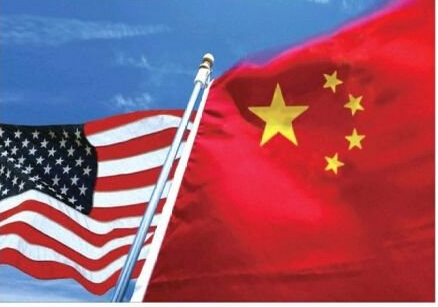As maverick Trump launches trade offensive, China should be well prepared
Global Times
1526252056000

Sino-US relations have not been derailed but are nonetheless headed toward a critical juncture. With China's rise, Sino-US relations are more vital than ever, affecting the whole world. Ever since president Richard Nixon visited China in 1972, relations between Beijing and Washington have witnessed their fair share of ups and downs. The two countries have become important bilateral partners by consistently respecting and developing the relationship.
The US and China are the two largest economies in the world. With deepening cooperation in every field and frequent exchanges, bilateral interests increasingly entwine and common interests grow. While cooperation will lead to win-win outcomes, confrontation invites lose-lose situation, a plain truth commonly agreed by anyone with a strategic vision and a sober mind. But we must admit that international affairs, especially relations between major powers, are more complicated than expected.
China and the US harbor huge differences in ideology, institutions and development paths: the main reason bilateral relations fluctuate from time to time. China insists that the two countries should manage differences and on this basis expand their relations. But the US has never given up the goal of westernizing, controlling and even overthrowing the Chinese political system.
China's development has far exceeded what the US predicted and its tolerance. For US elites, China has become the prominent rival with which the US must deal. People who stand tough on China can be found among both Republicans and Democrats. Candidate Donald Trump's criticism of China during his presidential campaign was no less than his competitor Hillary Clinton.
What's more, Trump's past praise for Russian President Vladimir Putin was aimed at driving a wedge between China and Russia, zeroing in on Beijing. Yet he was accused of Russian collusion after taking office and therefore blocked from uniting with Russia to confront China.
Like other US presidents, Trump has different faces at different times. He said earlier that he supports improvement in Sino-US relations. During his three meetings with Chinese President Xi Jinping, Trump praised Sino-US ties with many agreements signed, making people believe that he will forge stable bilateral relations. More recently, the US has taken more hawkish postures against China. They spell trouble for bilateral relations and reveal Trump as well as his administration's intentions about relations with China.
The US continually sends warships to cruise around the waters surrounding islands and reefs in the South China Sea, challenging China's sovereignty. It published the 2018 National Defense Strategy, listing China and Russia as rivals. Washington passed the Taiwan Travel Act that allows reciprocal visits of high-level officials between Taiwan and the US, trying to cross the three joint communiques' red line. The US has played a trade card against China, proposing high tariffs on imported Chinese goods.
The US is bullying without consideration for international regulations and China's interests. China has lodged stern representations with the US and fought back firmly with countermeasures. The US needs to halt its steps down this erroneous path and return to negotiations to resolve the dispute, which is in line with bilateral interests.
But we must prepare for the worst-case scenarios - if a trade war breaks out between China and the US, Washington plays the Taiwan card or makes trouble in regions surrounding China. Over these issues, China has already stated its stance and has got well prepared.
I believe that the US will not drag the situation to the worst since that would damage the US itself and hasten the fall of its hegemony. To stop making reckless decisions is the best choice for Trump.


